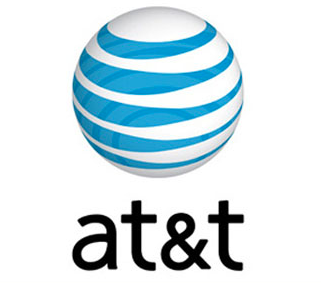AT&T patents file sharing blocker


AT&T has added a new invention to its portfolio: technology that can detect, block and ban file-sharers on a network.
Based on network activities, a user is assigned a "risk class" which, upon further monitoring, can result in file-sharing website access blockades, as reported by TorrentFreak.
The U.S. 8,590,054 patent, titled "Methods, devices and computer program products for regulating network activity using a subscriber scoring system," describes a network regulation system that keeps an eye on user behaviour before assigning them a "risk class" -- and allows the ISP to take action to curtail illegal behavior if necessary.
"Although the Internet may provide many useful resources for users, widespread access also provides an avenue for unscrupulous users and/or activities," the patent application reads.
"In this regard, many Internet users do not possess the knowledge and/or sophistication to avoid risks associated with accessing the Internet. Accordingly, many users may fall victim to exploits and/or malicious schemes of undesirable elements on the Internet, such as, for example, hackers. Internet piracy may account for significant bandwidth usage, which may be problematic for a service provider. Thus far, copyright protection measures that have been deployed by, for example, the entertainment industry, have failed to curtail increases in Internet piracy."
AT&T"s patent documentation also says that efforts to date to curtail piracy are insufficient, as "millions of downloads may result from just one file that is posted on a shared network." This, in turn, "may pose significant risks to the user, network and/or service provider."
However, by categorizing Internet subscribers and using surveillance methods, AT&T's patent says that while the system can potentially be used to keep surfers safe from hacking attempts, online file-sharing is one of the main problems which could be discovered and regulated. Dubbed "high-risk network activity," file-sharing -- which may involve copyrighted content -- could be stopped.
The patent says that in some cases of identifying users engaged in "high-risk network activities such as, for example, file sharing and/or Internet piracy," there may be consequences:
"Some embodiments provide that subscriber protection may include providing a walled-off and/or secured portion in the network in which the subscriber can have limited access to the network. For example, in some embodiments, access to risky network resources, such as, for example, illegal file sharing websites, may be denied."
With all patents, it is unknown whether the U.S. communications giant will ever implement this technology on its own network -- or lease it to other firms. However, despite efforts by organizations including the MPAA and court orders which have stipulated blocks for websites including The Pirate Bay by ISPs in various countries, piracy still proves to be a quick and free way to acquire content including music and films.
According to a NetNames study in January this year, between 2010 and 2012, nearly one-fourth of the total bandwidth used by all Internet users was used to acquire intellectual property protected content. The majority of infringing users -- 327 million out of 432 million -- come from North America, Europe and Asia. Dr. David Price, director of piracy analysis for NetNames and the author of the study, called piracy "tenacious and persistent," despite the growing availability of legal options for content-hungry consumers.